Description
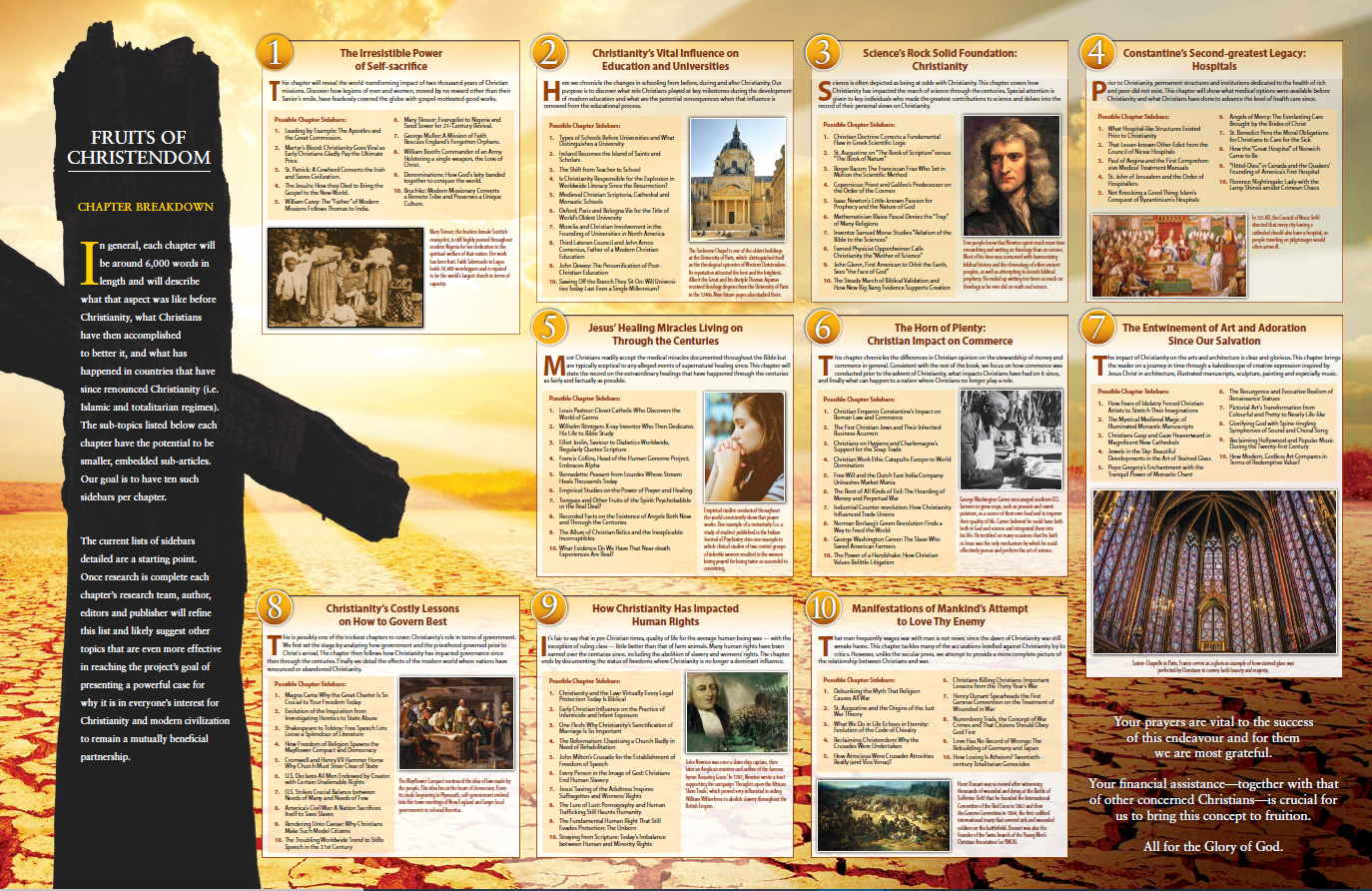
Fruits of Christendom will contain ten chapters, each focusing on an aspect of life today; for example human rights, health care or the conduct of war. Regarding that aspect, the chapter will describe what it was like before Christ’s arrival and what Christians have done since to make life better for everyone, regardless of creed. Nested within each of the ten chapters are ten additional ‘sidebar’ articles that further detail a person, or an event, or a related apologetic argument often waged against Christianity by its detractors. All told, 110 articles, each written by distinct and dedicated Christian authors of every major denomination, will be present in this tome. Each item of information will have been prayerfully selected by a team of dedicated researchers; each semblance of words carefully crafted by gifted writers and editors; and each article meticulously verified for accuracy and balance by a panel of expert academic historians. Selection of the 222 participants throughout the project is proportionately balanced between Protestant, Catholic and Orthodox Christian denominations. Click on the image above to see the proposed chapter breakdown of SEARCH’s current literary endeavor: “Fruits of Christendom” in a higher-resolution PDF format.
Christians arise!
If you love your country, it is time to preach the love of Christ.
When Christ commanded His church to go forth and make disciples of all nations, He set in motion a movement that changed the world.
In His name, millions of men and women set out to bring His love to a suffering humanity in the most practical of ways—by making life better for their neighbors.
In His name, they cared for the sick, relieved the poor, taught the uneducated and introduced a new moral basis to society.
And in His name, they even persuaded governors that political power had limits. Nowhere was this more so than in those nations we call ‘The West.’ Building on their scriptural foundation, they became engines of liberty and spread prosperity to more than in all of human history. Notwithstanding their imperfections, so they remain, drawing to themselves the peoples of the whole world.
But what happens when nations as a whole—either by force or through gradual indifference—reject Christ? No longer are His precepts widely known. And where they are, they are eagerly condemned by those who call our countries post-Christian—and wish them so. The Holy Fire continues to burn amongst the faithful remnant and in other lands, but history consistently shows the fate of such faithless nations to be grim.
Certainly, the majority of our nation’s schools abandoned teaching such precepts some time ago. This helps to explain some of the anomalies of our time…
The popularity of the absurd notion that cities should no longer finance their police forces is indicative of a generation we have failed to fully enlighten as to the full spectrum of important roles where our Lord calls on souls to serve and love thy neighbor. Scripture says the state wields the sword. Unsurprisingly, those untaught have no historical awareness of the tragic consequences of blunting it…
The irony of young people tearing down monuments they don’t understand, while condemning the moral foundations of churches that founded the very universities where they study.
Or the bitter rejection of Christ’s teaching that every soul is precious, regardless of skin colour… and the castigation of people who say ‘all lives matter.’
Do not be surprised. Those who hate God have always retold history to their own advantage and to the disadvantage of Christ’s church. They deny the work of God, appropriate the legacy of the saints and preach that humanity can, through government, be its own savior.
And despite our heartbreaking experience of Communism, fascism and Nazism, they still cannot admit that when Christianity is subtracted from a culture, it becomes less prosperous, less safe, less free and the dignity of the individual is lost—subsumed to some wider identity of class, culture or race.
In the coming year, SEARCH’s scholars and writers will reclaim these truths. We will publish, for a contemporary audience, a new account of how Christ’s word inspired the West. We shall retell Christianity’s transformative influence on government, human rights, education and universities and even the conduct of war…how it has inspired scientists, artists and
healers of the sick…and why the martyrs mattered. Readers will see again the West as a society that, alone in the world, tried to be the image of God’s kingdom, the light on the hill.
And if this light is covered, how much we all shall lose.
We can do this. But, we cannot do it without the investment of believers.
Will you join us?
Please give this your prayerful consideration.
On behalf of the editorial team at SEARCH
Society to Explore And Record Christian History
What Went Wrong?
Awash in complacency and deluded by post-modern philosophy, the western world is moving away from its Christian roots…and despite its enormous military and economic power, it risks as it does the heritage of a hundred generations. The consequences cannot be overstated: It is an existential problem. This book will address that problem.
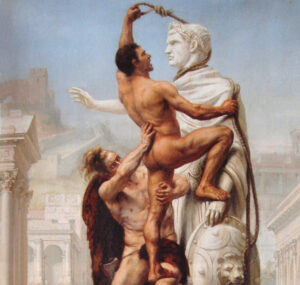
Civilization crumbles as a barbarian tide rolls over the west. — They came in marauding bands and in great swarms, speaking tongues that grated on Roman and Greek ears. They were seemingly indifferent to the human pain and cultural carnage they inflicted, and intent only on destruction. They represented a range of many distinct tribes, but the effect of their depredations was similar, and the people of the empire called them all “barbarians” (aliens) and saw them as inferior. They were certainly not inferior in battle.
Where we stand in history
In so many ways, our lives seem secure. As the twenty-first century unfolds, we live at an apex of societal accomplishment… we eat better, earn more, work less and live far longer than any generation that came before.
And yet, apexes can also be cliff tops, and can therefore be dangerous: Nations have lived at apexes before—and come crashing down.
We have been here before
The Old Testament, for example, talks about another society like our own: Jerusalem, before the Babylonian destruction. Rich, powerful, complacent but also corrupt—a nation that had abandoned God, was given to perverse sexuality and served pagan deities, even sacrificing its children.
Or imagine meeting a Roman citizen in the fourth century. Looking back over his shoulder at a thousand years of continuous history, he would have had every reason to believe ‘the eternal city’ would last another thousand years. It was the greatest in the world—more than a million strong and the center of the largest empire the world had ever known. Rome had had its troubles, but it had always come through before: It was invincible.
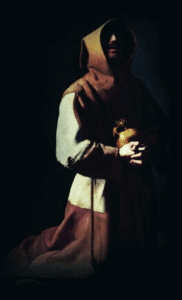
Francis, the man from Assisi who taught the world the realities of Christ. — St. Francis of Assisi, shown here contemplating death in a painting by Francisco de Zurbaran (c. 1635). He created a quiet revolution in all western Christendom simply by listening to and following the words of Christ.
Were he to give it any thought at all, he would say Rome was destined only to get larger and mightier in years to come. If you told him that instead the city was about to be invaded, sacked and burned by waves of barbarian invaders, and that its people would suffer war, disease and pestilence till only a few thousand souls remained there alive, he would have told you it was out of the question. Yet all this is what precisely came to pass.
Our own ancestors learned the hard way the necessity of dedicating a nation to God, which is why you will invariably find scripture carved into the stone of virtually every legislative building. The Memorial Chamber within the Peace Tower on Ottawa’s Parliament Hill, for example, displays this passage from Nahum: “The Lord is good, a stronghold in the day of trouble; and he knoweth them that trust in him.” “In God We Trust” is prominently displayed in both the United States House and Senate Chambers. Both these nations, unfortunately, have since been steadily removing God from the fabric of national life. One might argue whether governments led the way or merely reflected after the fact the will of an erring people.
Certainly, if church attendance is the measure of Christian devotion, its steady, continuous and accelerating decline since the Second World War points clearly to a widespread loss of faith.
On the other hand, it is one function of government to signal what constitutes good civic behavior. So, when government and the legal system redefine good and evil, and elevate the right of man over duty to God, even the faithful may be deceived: At the least, they become confused and discouraged and so do many of the pastors who lead them.
Either way, the people have become sheep without a shepherd, ignorant of their great heritage and of the biblical foundation for the liberties they say they have, but of which they have in fact permitted the slow erosion.
Setting the record straight on Christianity’s contributions
For the last two thousand years the dominant religion in western civilization has been Christianity. Christians and the church have played pivotal roles in creating the most important aspects of modern-day civilization, including universities, health care, human rights, commerce and modern democratic principles.
It is therefore the tragedy of our times that ‘progressives’ have been so successful in decoupling the West from its Christian inspiration. Clearly they have learned nothing from the great genocides the 20th century in China, the USSR or Nazi Germany—nations whose governments owed nothing to the God of the Bible—where wonderful new societies were promised, but could only be possible (their leaders said) if class enemies, bourgeoisie or racial minorities were first killed by the millions.
What Can We Do About It?
A powerful new historical summary that strongly supports current apologetic efforts
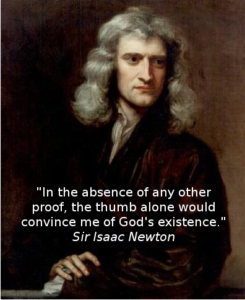
For, while apologetics and emotion have always been the foundation of evangelism, and necessarily
so, it is the facts of history that validate them. It is history that is the vital “third leg” upon which a solid argument can be presented. And sadly, the history our young people are taught today—if in fact they are taught anything of our country’s shared experience at all—is quite different from that of their predecessors.
Ask a trial lawyer: They will tell you the most important evidence to be presented when establishing a client’s credibility is his past actions.
It is the same for Christianity.
It is not to be wondered at that the lie still has its force or that so many of a rising generation are now persuaded that for mankind, Christianity has been more of a bane than a boon. But it is for us who know better to do something about it.
Ten important “fruits” harvested from the hard work of our Christian forebears
This book will be our answer. It aims to change that perspective by focusing on Christendom’s fruits since Christ first showed us the way.
Each chapter will chronicle the development of a major aspect of our western society today. For example, the chapter on hospitals will detail every major milestone and show how Christians and Christianity played pivotal roles.
Other chapters will also demonstrate how universities, scientific discoveries and major political concepts developed through the centuries and how Christians often played key roles. Fruits of Christendom will show The Faith guiding our ancestors in their consistent—but not perfect—efforts to mitigate man’s instinct for perpetuating a cycle of violence, death, destruction and revenge, death and destruction.
Creating a legacy book that will be read and referenced for generations
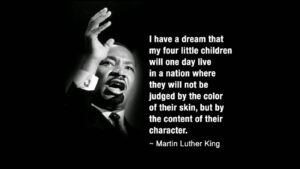 It is time to retell the great story, and reclaim liberty’s Christian foundations.
It is time to retell the great story, and reclaim liberty’s Christian foundations.
But today, our young people are often taught to despise Christianity…That instead of being the clear and beautiful fount of liberty, it is in fact a breeding swamp for hate and oppression. It is the powerful old Edenic lie, refined at Babel and nurtured by those who have for thousands of years rejected God’s ownership of His creation and His sovereignty over it.
Our goal is to create a book that is both highly readable and easily accessible for future reference. Our experience publishing the history series “The Christians: Their First Two Thousand Years” revealed to us that readers prefer smaller articles more often than the longer chapters. Therefore, to increase readability we propose that this book be highly illustrated, and
have a high ratio of smaller sidebar articles included in each chapter.
It’s time to win this war
One thing is for certain, despite all the apologetic work available today, Christian influence in Canada and the United States is reaching dangerously low levels. We plan to produce a book that presents Christianity’s historical track record so effectively that even die-hard atheists would have to admit it far more beneficial than detrimental.
However, this project is not possible without your prayers and financial support.

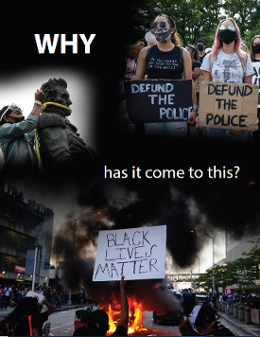




 It is time to retell the great story, and reclaim liberty’s Christian foundations.
It is time to retell the great story, and reclaim liberty’s Christian foundations.